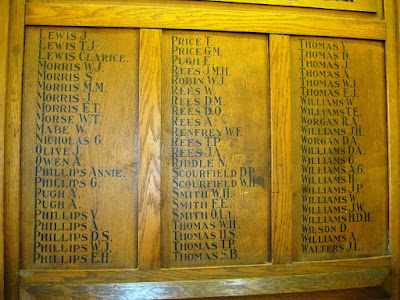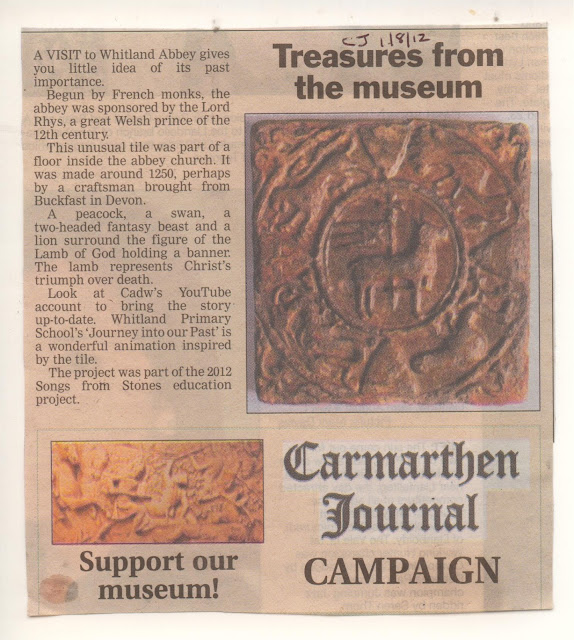130 years ago today!
From the South Wales Daily News 22 September 1896
NTERMEDIATE EDUCATION IN CARMARTHENSHIRE. OPENING OF A SCHOOL AT WHITLAND. 11 SPEECH BY SIR LEWIS MORRIS. Monday was a red-letter day at Whitland, which was gaily decorated with bunting on the occasion of the opening of an Intermediate school built on a site given by Mr John Phillips, Clydach Vale, who is also a subscriber of jS50 to the building fund. Although the weather was unpropitious, nevertheless there was a large assembly of educationists and others residing in and far beyond the district, and the dual school, which faces Pwllyhead-road and will accommodate 100 pupils--60 boys and 40 girls was greatly admired. The building was erected from the designs and under the supervision of Messrs Griffiths and Jones, M.M.S.A., Tonypandy and Pontypridd, whose plans were selected by the local managers in an open competition. The contractors were Messrs Rowlands and Lloyd, Trealaw, Glamorganshire, the painting being executed by Mr G. Williams, Whitland. The indefatigable secretary was Mr Griffiths Rees, of Whitland. The head master is Mr Evan Jones, M.A., the headmistress being Miss Spencer, B.A. The school was opened in temporary premises on October 23rd, 1894, and already 79 scholars are being afforded excellent tuition. Monday's ceremony commenced with laying the memorial stones, the mementoes of the service being two silver trowels. chastely engraved, which were presented to Mr H. J. H. Lawrence, J.P., of Ridgways, Narberth, and tbe Poet of Penbryn, each being similarly inscribed. Mrs Dr. Lawrence and Mr J. Lloyd Morgan, M.P., having formally unlocked the girls' and boys' departments respectively, the company proceeded to the large assembly hall, the chair being occupied by Dr. Lawrence, chairman of the local school managers









































+-+Photographic+Souvenir+0....jpg)
+-+Photographic+Souvenir+0..._1.jpg)
+-+Photographic+Souvenir+0..._1_1.jpg)
+-+Photographic+Souvenir+0..._2.jpg)
+-+Photographic+Souvenir+0..._2_1.jpg)
+-+Photographic+Souvenir+0..._3.jpg)
+-+Photographic+Souvenir+0..._4.jpg)
+-+Photographic+Souvenir+0..._5.jpg)

